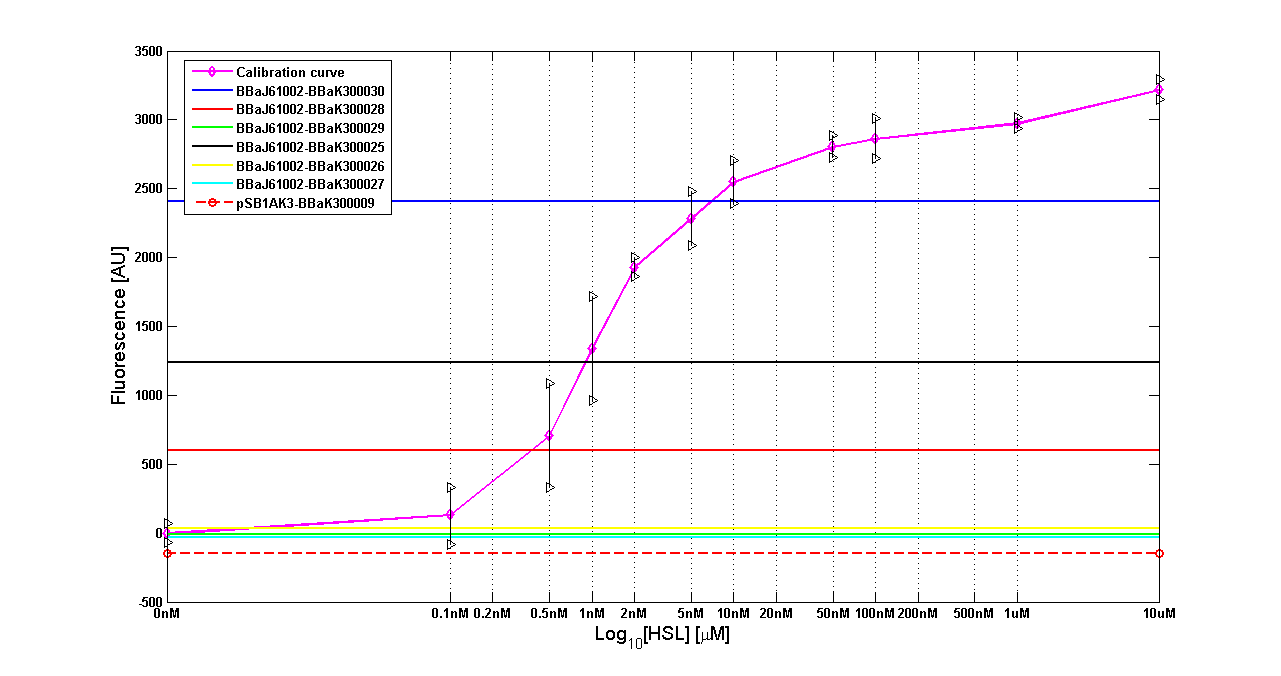Team:UNIPV-Pavia/Material Methods/Measurements/Tecan/test8settembre
From 2010.igem.org
(→Methods) |
|||
| Line 40: | Line 40: | ||
* <partinfo>pSB1AK3</partinfo> - <partinfo>BBa_K300009</partinfo> (negative control) | * <partinfo>pSB1AK3</partinfo> - <partinfo>BBa_K300009</partinfo> (negative control) | ||
| - | The light-blue wells refer to the same cultures grown over night; as the results were the same of the cultures grown for about six hours, from now on we have followed only the steps shown in [[Team:UNIPV-Pavia/Parts/Characterization#Microplate reader experiments for self-inducible promoters - Protocol #3|Protocol 3]]. | + | The light-blue wells refer to the same cultures grown over night; as the results were the same of the cultures grown for about six hours, from now on we have followed only the steps shown in [[Team:UNIPV-Pavia/Parts/Characterization#Microplate reader experiments for self-inducible promoters - Protocol #3|Protocol 3]]. All supernatants were diluted 1:100. |
==RESULTS== | ==RESULTS== | ||
Revision as of 09:52, 23 October 2010
|
|
||||||||||||||||||||||||
|
|
|
||||||||||||||||||||||
 "
"


